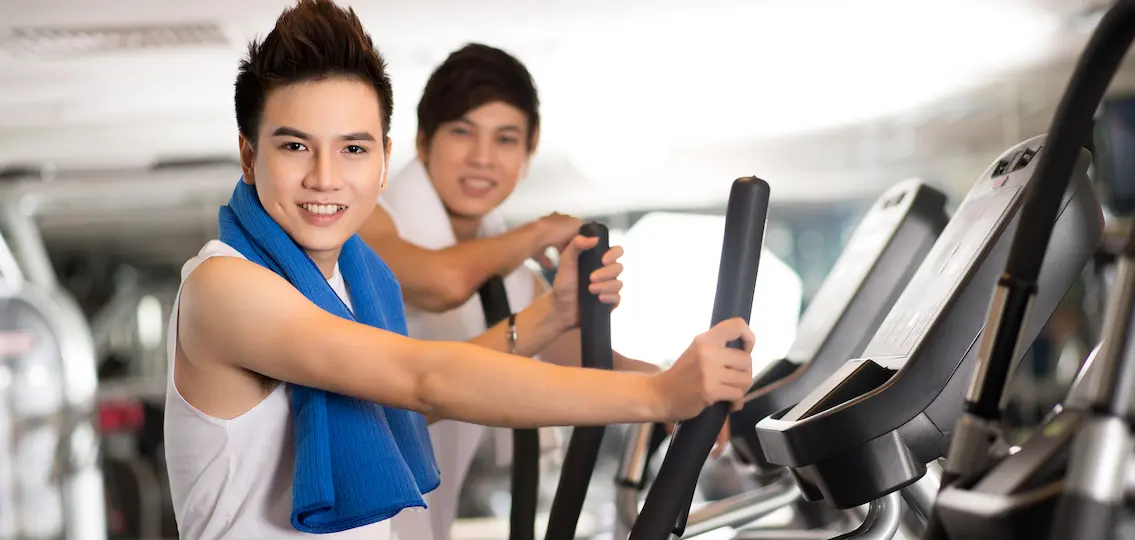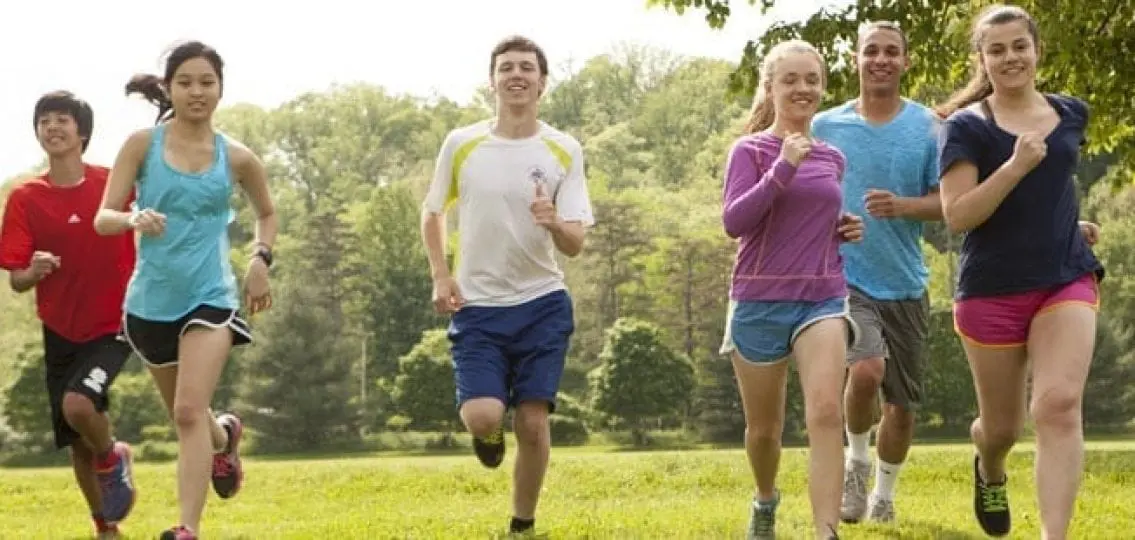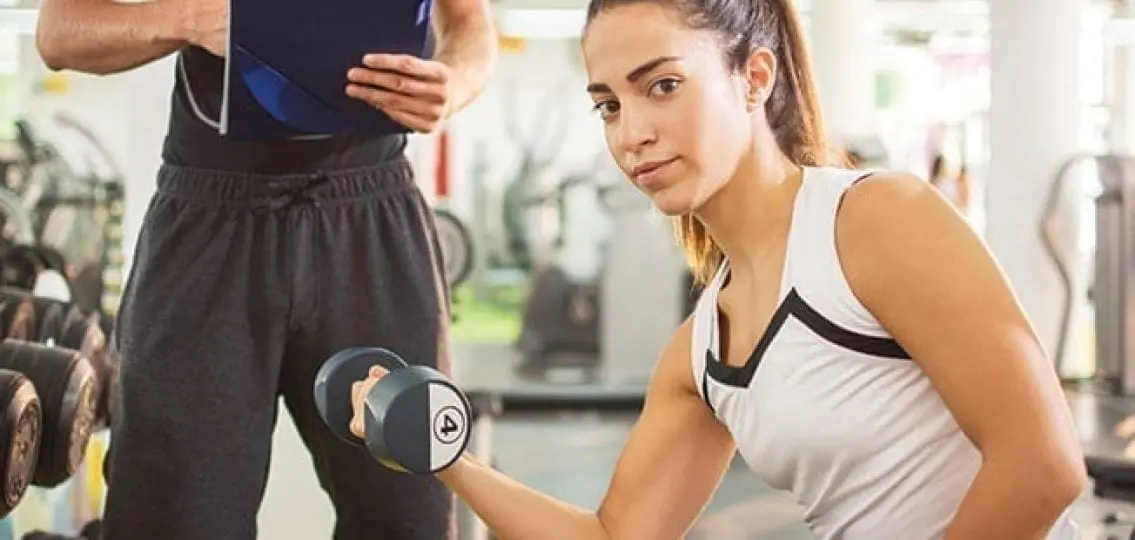Some teens aren’t into competitive sports. Or they may be overweight, or uncomfortable exercising. But fitness for teens is important for overall physical health and well-being. How can parents encourage their inactive teens to be more physically active and healthy? Is a personal trainer a good option for your teen?

We posed these questions to Meredith Therrien, an ACE-certified personal trainer with Energetic Juniors, a personal training organization for children and teens in New York City.
Q: Why would a teenager or pre-teen need a personal trainer?
Therrien: Many clients find a personal trainer because they are overweight and have been bullied in school. We have clients who aren’t interested in the sports available to them at their school. Some are just inactive and uninterested in physical activities. We receive referrals from pediatricians as well. They may be uncomfortable in gym class, either because they aren’t as coordinated as their peers or because they are embarrassed about how they look and about exercising in front of their peers.
Q: Do you have young clients who just don’t want to be there?
Therrien: At first, definitely. For these kids, exercise has been an embarrassing experience. Just moving their bodies is uncomfortable. A 10- or 11-year-old isn’t necessarily like an adult where they understand the benefits of physical fitness for teens. Their parents may be making them do this. If they are awkward or resistant, we can usually turn them around pretty quickly. The first thing is getting kids out of a setting where they are in front of their peers. I emphasize that “I am not judging you. We are here to try our best.” I focus on having them notice how they are improving. Most clients will quickly gain strength after beginning to work out. They get very excited when they discover, “Look what I can do now!” We will talk together about their goals and try to find activities they enjoy.
Q: What kinds of activities does a personal trainer do with a younger client?
Therrien: What does a personal trainer do? Well, I ask what they want to do. Or we try a variety of activities, like kickboxing, yoga, made-up games—then I see what activity excites them. They will find themselves laughing and sweating, even if they didn’t want to be there. For younger clients, I might use games involving bean bags or balls. Some activities frequently sound like they may be too young for their age, but they love them. Many kids don’t have recess anymore, so some of them have never participated in those kinds of games before.
I once brought a hopscotch board to a session with a teen client and said, “You probably remember this from grade school,” but she had never had recess. For pre-teens and older, I may try circuits, or training with resistance bands, body weight, or medicine balls, which are less intimidating than traditional gym weights. My own background is dance. I had one client where we worked together on a dance routine, which she then went home and taught to her mother. And she loved being able to teach her mother something.
Q: How do you motivate a resistant kid to exercise?
Therrien: I encourage them to have an open mind. I say, “I want you to feel strong.” You feel good when you feel strong. So I encourage them to compete with themselves and to focus on the progress they’ve made. I encourage them to notice how much better they can do something than the last time. If I hear “I can’t do this,” I will say “Let’s do it together.” It’s great when we find something they enjoy that we can make into exercise.
We frequently will incorporate dogs into our training sessions with pre-teens and teens, whether they are therapy animals or family pets. I had a client who was very overweight, and very nervous and awkward about movement. But I could see how much she enjoyed being with her dog. We used the dog to get her running, throwing a ball and chasing the dog. She could see that the dog really loved it. We got her running and sweating—and she had a great time.
Q: Do you involve parents in training sessions?
Therrien: We try to involve parents in activities, too. Kids love that. It makes them feel better when they see their parents struggle to learn a new exercise, or fall down, or be bad at something. Our goal is to encourage parents and teens to explore different options of activities they can do together. I had a client who was very overweight. Not long after we started working with her, her father (who was a runner) told us that she had joined him for one of his runs and actually ran a whole mile with him for the first time ever.
Q: What should parents look for in a personal trainer?
Therrien: Parents usually know what their kid would respond to best. A trainer should be knowledgeable, positive, and make your child feel comfortable. They should be certified by an accredited organization such as ACE (American Council on Exercise), NASM (National Academy of Sports Medicine), ACSM (American College of Sports Medicine), or any other accredited certification. They should listen to what your son or daughter would like to try.
Q: What are some alternatives for fitness for teens if you can’t afford a personal trainer?
Therrien: There are so many great options to make exercise a family activity. Go outside together. Go for a walk. Play with your kid, or with the dog. Go hiking. Try yoga, martial arts, swimming, dance. Be active in any environment where there are no peers watching.

Q: What other benefits are there in physical fitness for teens and pre-teens?
Therrien: We help them make physical activity a part of their everyday lives, at their own pace. Some of them want to transition into traditional sports; some of them love finding activities that interest them. Feeling good about their bodies and reaching goals gives kids that extra boost of confidence and self-esteem, when they realize they can accomplish anything they set their minds to.




